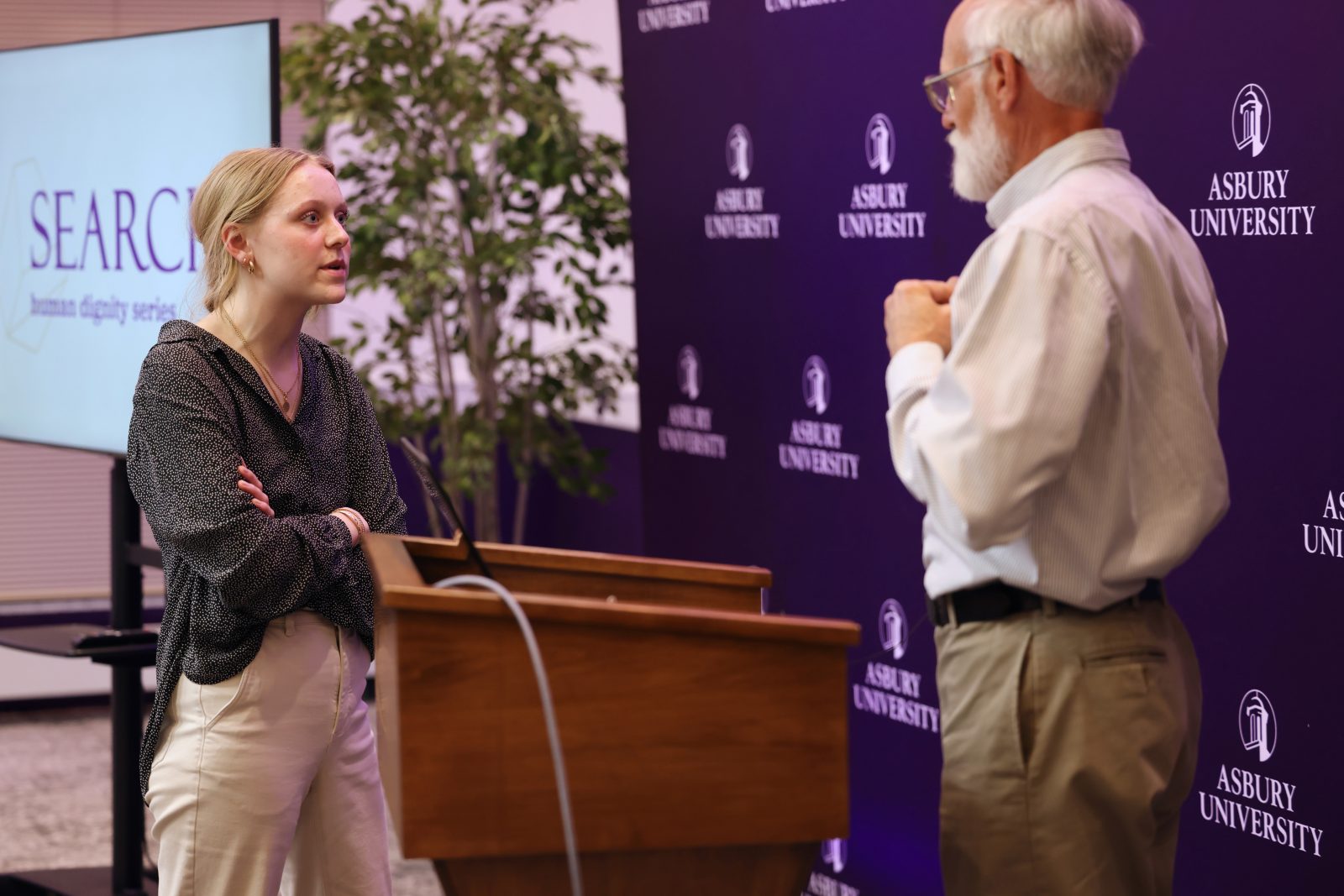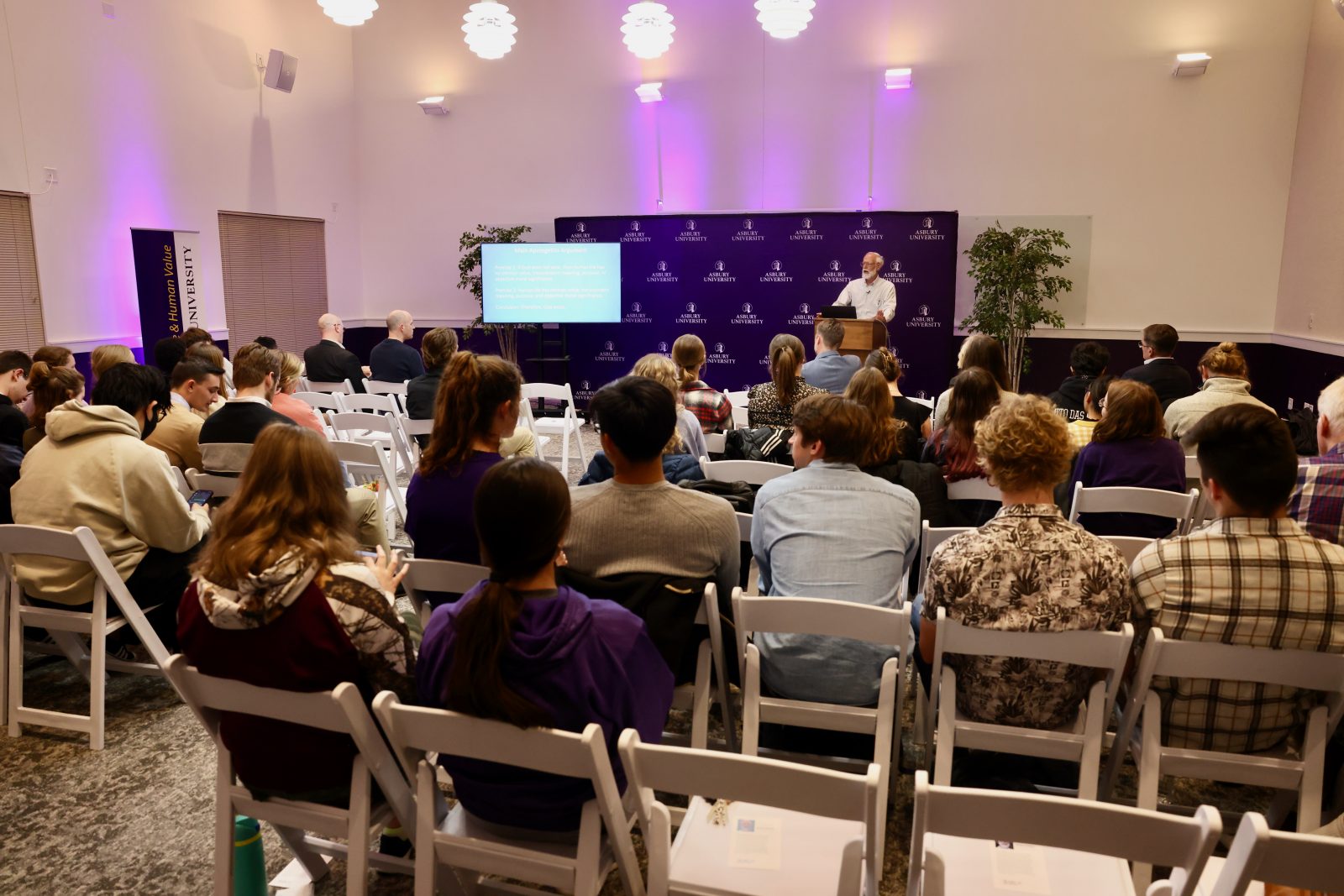A Few Reflections from Our Human Dignity Lecture Presenter

After Dr. Weikart’s presentation to our campus and fireside chat with the Asbury University Honors Program students, he provided some further thoughts via an interview. Here is the transcript of that exchange.
What gives people value?
Everything that God has created has value, but some created beings are more valuable than others. Humans are unique from all other created beings, because we are created in the image of God. We have an eternal spirit or soul that can enjoy communion with God.
Part of being created in the image of God entails that we as humans have various characteristics that resemble some of God’s characteristics. Some examples are our level of rationality and abstract thinking, our creativity, the use of language, our moral sense, our capacity to love (both God and our fellow humans) sacrificially, and our free will. We need to be careful, however, not to think that any of these particular characteristics endow value upon us. This is because in a fallen world some humans lack or are not able to express some of these characteristics. Also some humans may have more of certain of these characteristics than other humans, and this does not imply that they have more value because of that.
What are the implications of finding that there is intrinsic value in ourselves and others?

When we say that humans have intrinsic value, we mean that every human has value based on who he or she is, not based on what anyone (including himself or herself) thinks about that person. The implication of this idea is that all human lives are valuable and every human being has the right to life.
Why is it important for us to consider questions such as these?
Many secular thinkers and bioethicists today deny that humans have any intrinsic value, so they claim that the value of a human is dependent on them having certain characteristics. Utilitarian thinkers like the Princeton bioethicist Peter Singer argue that only what promotes pleasure and minimizes pain is morally good. Because of that, he and others argue that abortion, infanticide, assisted suicide, and euthanasia are not only morally permissible, but may even be morally praiseworthy in some cases. Denying the intrinsic value of humans has real consequences and really is a matter of life and death for millions of people in our time.
Why is there such confusion relating to defining human dignity?
I try to avoid the term “human dignity” in my writing and speaking, because it seems to be a slippery term. I prefer using terms like “intrinsic value of humans” or “the sanctity of human life” or the “right to life.” Of course, I believe that humans have dignity and that we need to uphold human dignity, but unfortunately many scholars have wrought confusion about the meaning of the phrase.
